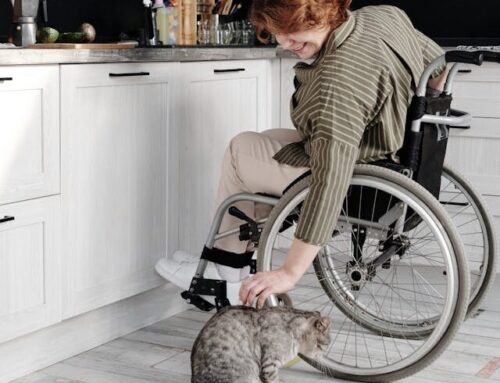Those with type 2 diabetes have an increased risk of developing chronic cardiovascular conditions, but could it also be affecting your brain? Diabetes has been linked to an increased risk of developing dementia, and research suggests that the two conditions may share some common risk factors.
What is Diabetes?
Diabetes is a condition in which the body struggles to regulate blood sugar levels. This can be due to several reasons, but the main one is insulin resistance. Diabetes is the seventh leading cause of death in the country, and puts you at risk for other serious conditions like heart disease and stroke. Recent studies have found that diabetes may also increase the risk of diseases like Alzheimer’s and dementia. The Journal of the American Medical Association said the link between diabetes and dementia is hypoglycemia – low blood sugar.
Our brains use glucose (sugar) for energy. When blood glucose levels are too low, like in someone with diabetes, it can cause neuronal damage or cognitive dysfunction and possibly lead to issues like mild cognitive impairment, dementia, and Alzheimer’s.
Type 2 Diabetes vs. Type 1 Diabetes
Type 2 diabetes is the most common form of diabetes, accounting for 90 to 95 percent of all cases. It usually develops in adulthood, but the incidence of type 2 diabetes in children and adolescents is rising due to the increase in childhood obesity. Type 2 diabetes is often caused by lifestyle factors such as being overweight or obese, lack of physical activity, and poor diet.
Type 1 diabetes is much less common, accounting for only 5 percent of all cases. It typically develops in childhood or early stages of adolescence and is caused by the body’s inability to produce insulin. People with type 1 diabetes must take insulin injections to control their blood sugar levels as a part of their diabetes care routine.
What is Alzheimer’s Disease?
Alzheimer’s is one of the main types of dementia and is characterized by certain proteins that form in the brain, known as plaques and tangles. These plaques and tangles damage and kill brain cells, which leads to memory loss and other a decrease in cognitive function.
A study from Albany University found that the extra insulin produced by those with type 2 diabetes eventually disrupts brain chemistry and forms the same proteins found on the brain cells of those with Alzheimer’s.
“People who develop diabetes have to realize this is about more than controlling their weight or diet. It’s also the first step on the road to cognitive decline,” said Edward McNay of Albany University. “At first, they won’t be able to keep up with their kids playing games, but in 30 years’ time they may not even recognize them.”
The Link Between Diabetes and Alzheimer’s
There are a few ways diabetes can increase your risk of developing Alzheimer’s disease. First, diabetes can cause inflammation throughout the body, which has been linked to an increased risk of Alzheimer’s disease. Diabetes may also cause changes in the brain that lead to the formation of the same proteins such as hemoglobin found in Alzheimer’s patients.
Diabetes in Older Adults
Seniors and older people are at a higher risk for diabetes due to several age-related factors. As we age, our bodies become less efficient at using insulin and more resistant to its effects. This makes it harder to control blood sugar levels and can lead to type 2 diabetes. Age-related changes in the body also make geriatric individuals more likely to develop complications from diabetes, such as heart disease, stroke, kidney disease, and nerve damage.
Risk of Dementia
Diabetes creates an increased risk of dementia. The presence of each condition is also likely to make the other worse. In a vicious cycle, cognitive impairment caused by hypoglycemic events may increase the risk of future events, which in turn can contribute to further cognitive decline. Researchers found that those who had a severe hypoglycemic event resulting in hospitalization were twice as likely to develop dementia within the next 12 years. Professor Melissa Schilling, a strategy and innovation expert at the NYU Stern School of Business, found that hyperinsulinemia, common in those with early diabetes, pre-diabetes, and obesity, was also linked to Alzheimer’s.
Common Risk Factors of Dementia
Common risk factors include:
- Diabetes
- Obesity
- High blood pressure
- High cholesterol
- Hypertension
- Family history of Alzheimer’s disease
- Smoking
- Cardiovascular diseases
How to Break the Cycle
What can we do to break the cycle? Schilling, whose studies show that hyperinsulinemia is present in nearly half of those with Alzheimer’s, said that researchers and specialists could start by raising awareness of the possibly linked conditions.
“If we can raise awareness and get more people tested for hyperinsulinemia, especially those who have been diagnosed with or who are at risk for dementia, it could significantly lessen the incidence of Alzheimer’s disease and vascular dementia, as well as other diabetes-related health problems,” Schilling said.
November is National Alzheimer’s Disease Awareness Month as well as American Diabetes Month. While more research is needed to prove diabetes is a cause of Alzheimer’s and dementia, controlling diabetes may play a role in fighting the formation of toxic plaques in the brain. Seniors can reduce their risk of type 2 diabetes by living a healthy lifestyle – eating nutritious foods, maintaining a healthy weight, quitting smoking, and keeping blood pressure and cholesterol low. Regular exercise will improve cardiovascular health, which in turn protects the brain. Studies show that those with prediabetes reduced their risk of type 2 diabetes by over 50 percent when exercising for 30 minutes a day, five days a week.
Supporting Seniors with Diabetes and Dementia
Reduce your risk of diabetes and dementia. You can lower your risk of both by maintaining a healthy lifestyle. At Amada Senior Care, our caregivers go above and beyond to support senior clients, including those struggling with diabetes and dementia. For more information on our services, contact us today for a free care needs consultation.



